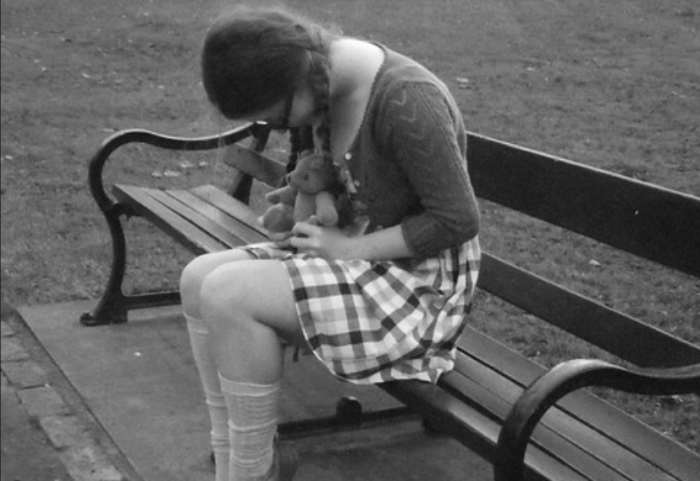The first time I was referred to counseling was in my junior year of high school.
Up until then, it seemed no one really noticed my struggles—or they chose to look the other way. I was in a social studies class taught by a silver, messy-haired type man with a mess of a desk, similar to maybe a Kramer type if you get “Seinfeld” references.
He talked and talked incessantly about the maps and the globes and the history. I could barely keep my eyes open. I had a firm rule at school—just do enough to scrape by.
This guy always seemed to call on me and cast me out of my distant stare; fantasizing about some boy or outfit I’m sure. After a few dejected responses, he asked to speak with me after class. We talked and I told him I was tired. I worked after school, a 30-minute drive from home till late, and took Vivarin and Ephedrine (my friends and I ate that stuff like candy) to stay awake and alert at school.
He called a number and handed me the phone. He said he had a suspicion that I was being abused at home and had me talk to a Youth and Family Services worker. After that, he took me out in the hall, and we sat on the bench. I wouldn’t give up much info about my home life. I was always threatened that I would be taken away if I told the truth and that alternative seemed scarier than what I was dealing with.
I started seeing a counselor there for a 10-dollar flat fee per session and had a long list of problems and issues I was having. I was grieving over my grandpa’s death that year (who was like a father to me), and I had many scenarios in which I just didn’t know what to do. I feared for my life at certain points when my mom’s boyfriend got too drunk, and I couldn’t trust my parents to help me get out of this life of darkness and abuse.
Fast forward 25 years; I am sitting at a conference for work. I am learning about childhood trauma and how it affects children, and later adults. How children who have experienced trauma and live in a high-risk environment are more likely to have certain mental health issues, disabilities, and even are more susceptible to heart disease and cancer.
There are three types of ACEs: abuse, neglect, and household dysfunction. During that workshop, I was able to take the quiz and learned I had experienced 10 out of 10 Adverse Childhood Experiences.
Father in prison—Check
Drugs in the home—Check
Mentally unstable parent—Check
Abuse and fighting—Check
So, why did it take 25 years for me to learn about my childhood trauma and this ACE quiz?
I had been in therapy for the majority of my life at this point, and it seemed all anyone wanted to do was listen to me rattle on and prescribe me more drugs to “calm me down.”
As an adult, I have learned that therapists, as a rule, have not been taught how to be trauma-informed. PTSD was something believed to only have happened to war veterans. As of late, more research has been done and therapists are adding to their title “trauma-informed.”
From the Relias Website, about trauma-informed care: the ACEs study has proven that trauma is common and directly impacts physical and mental health outcomes. Current health care trends like integrated care, CCBHCs, and outcome-based performance management, include trauma-informed care either by mandate or as a key element of success.
If you haven’t taken the ACE evaluation I invite you to here: ACE Quiz
The website further explains:
“Remember this, too: ACE scores don’t tally the positive experiences in early life that can help build resilience and protect a child from the effects of trauma. Having a grandparent who loves you, a teacher who understands and believes in you, or a trusted friend you can confide in may mitigate the long-term effects of early trauma,” psychologists say.
“There are people with high ACE scores who do remarkably well,” says Jack Shonkoff, a pediatrician and director of the Center on the Developing Child at Harvard University.
Resilience, he says, builds throughout life, and close relationships are key. Recent research also suggests that for adults, “trauma-informed” therapy—which can center on art, yoga, or mindfulness training—can help.” ~ NPR
I believe that’s what we do here at Elephant Journal to bring our past traumas and issues up and out for healing. We have found a community to bounce ideas off of things that have worked for us in our healing journey. We walk a little taller after sharing the struggles we have faced and adversity that has challenged us. We begin to feel less alone after sharing our stories and hearing others. We know that we are trudging similar paths, and although we may be from different parts of the world, we feel a connection in our commonalities. We are all striving to be the best version of ourselves. We are here to support one another and where people are divided as a whole, we strive to come together for the greater good.
I wish you the best on your healing journey. Keep trudging.
~








Read 12 comments and reply